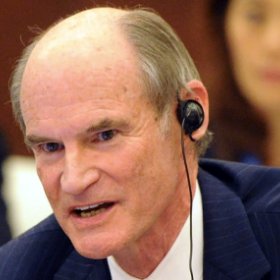
EastWest Institute Endorses the Paris Call for Trust and Security in Cyberspace
The EastWest Institute is pleased to endorse The Paris Call for Trust and Security in Cyberspace, announced by Emmanuel Macron, President of France, on November 12, at the Paris Peace Forum.
EWI advocates for the principles presented in this document, designed to inform and engage stakeholders—including governments, the business community and civil society—to establish “rules of the road” that will benefit all Internet users around the world. Such efforts highlight the opportunities and the threats in cyberspace today, and underline the shared responsibility of all netizens to work to ensure a safe and secure cyberspace for everyone’s benefit.
“Although details will continue to be debated and refined, the Paris Call reflects an emerging global consensus around what is—and what is not—acceptable behavior for states and non-state actors in cyberspace,” said Bruce McConnell EWI’s Global Vice President. “It is high time for the international system to bring the cyber arms race under control.”
The measures championed in this initiative align with the objectives and ongoing efforts of the EastWest Institute’s Global Cooperation in Cyberspace program, which is committed to reducing conflict, crime and other disruptions in cyberspace and promoting stability, innovation and inclusion.
EWI invites you to join The Paris Call for Trust and Security in Cyberspace, and to support it as an important contribution to the collaborative process of ensuring cyberspace security.
PARIS CALL FOR TRUST AND SECURITY IN CYBERSPACE
November 12, 2018
Cyberspace now plays a crucial role in every aspect of our lives and it is the shared responsibility of a wide variety of actors, in their respective roles, to improve trust, security and stability in cyberspace.
We reaffirm our support to an open, secure, stable, accessible and peaceful cyberspace, which has become an integral component of life in all its social, economic, cultural and political aspects.
We also reaffirm that international law, including the United Nations Charter in its entirety, international humanitarian law and customary international law is applicable to the use of information and communication technologies (ICT) by States.
To read the document in its entirety, please click here.

